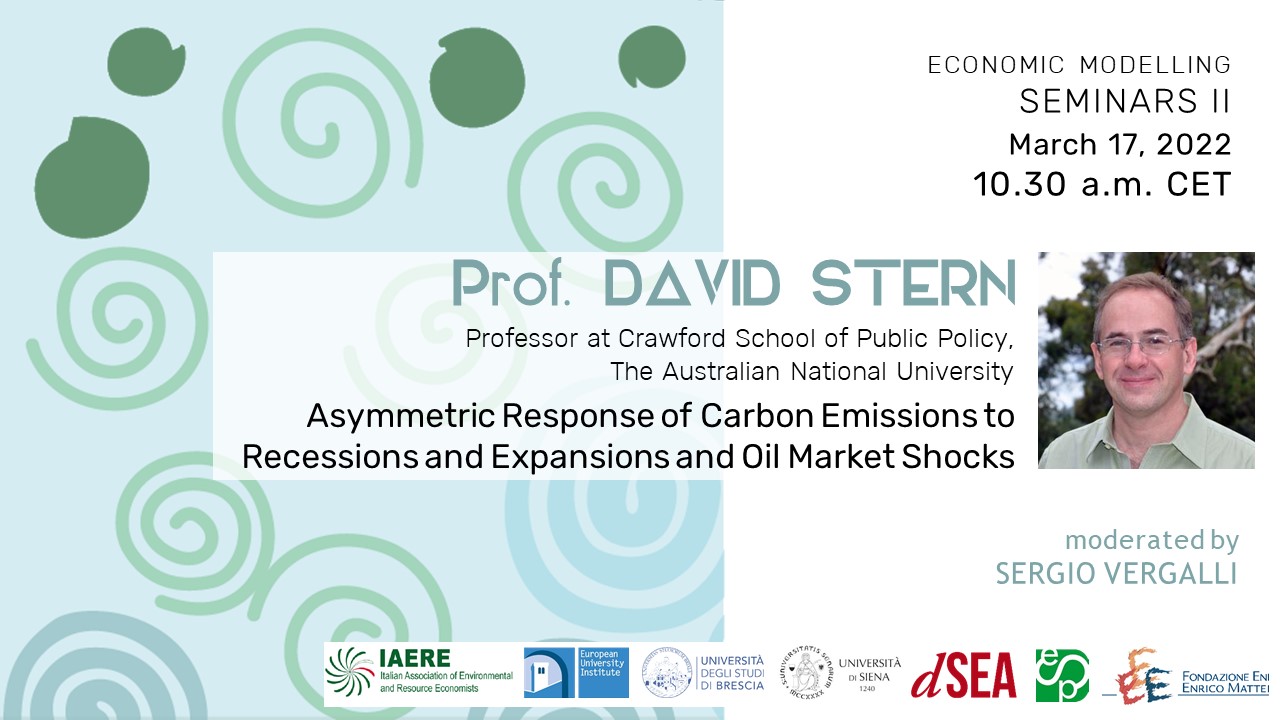Prof. David Stern – Crawford School of Public Policy, The Australian National University
Introduced by Prof. Sergio Vergalli - University of Brescia
March 17, 2022 – 10.30 am CET (UTC + 1)
Live presentationon Go To Webinar
Register here
ABSTRACT
The 2020 COVID-19 driven recession saw a sharp drop in carbon dioxide emissions as transportation and some other energy uses were curtailed. This was an unusual recession as it was driven by a pandemic. Previous research shows that when GDP declines carbon emissions fall faster relative to GDP than they rise in economic booms. Using monthly US data, we examine each individual recession in the US since 1973 finding that there is an asymmetric response in the 1973-5, 1980, 1990, and 2020 recessions but not in the 1981-2, 2001, or 2008-9 recessions. The former four recessions are associated with negative oil market shocks. In the first three there was a supply shock and in 2020 a demand shock. Changes in oil consumption that are not explained by changes in GDP explain these asymmetries. Furthermore, the asymmetries are due to emissions in the transport and industrial sectors, which are the main consumers of oil. We conclude that emissions behaved in 2020 similarly to the way they did in recessions associated with oil supply shocks, but actually this pattern is not inherent to the business cycle itself.


